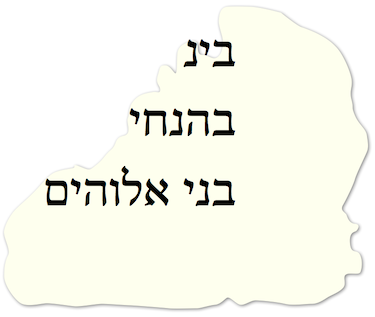Oops! Sorry about not finishing my above post, but I didn't know how to continue to write under the quotation.
But anyway, I don't know if Leolaia is around right now, but I wanted to share with her some information that I discovered about the Deuteronomy 32:8-9 Dead Sea Scroll quote:
Monday, 23rd January, 2012 by martin
deut 32:8–9 and the ancient israelite pantheon?
During a recent online debate the question of the meaning of Deut 32:8–9 was raised as evidence of the Bible’s affirmation of polytheism and the subordinate status of the God of Israel, Yhwh. The essence of the claim is that the version of this passage preserved in the DSS identifies El Elyon as head of a pantheon who assigns nations to various subordinate deities, and Israel is assigned to Yhwh in this process.
The argument rests upon the alternate reading found in a fragment from cave 4 at Qumran (4Q37 or 4QDeut j ). 1 This fragment only preserves a few words from these verses.
Here’s a diagram which illustrates the extent of the relevant fragment of 4QDeut j (i.e. 4Q37):

[...]
Ultimately, however, there are too many problems with both of these claims for them to be viable.
- There are a number of references to sons of God in the OT. A singular “son” of God is a designation for God’s appointed human king (e.g. Ps 2:7). Plural sons appears to refer to the members of a divine court, presumably angelic beings but certainly not “gods” (e.g. Gen 6:2, 4; Job 1:6; 2:1; 38:7).
One particularly interesting text is Ps 82:6 which reads:
אני אמרתי אלהים אתם
ובני עליון כלכם
I said, “You are gods,
and sons of ʿelyôn are you all!”
The gods (אלהים, ʾelōhîm) who are sons of עליון, ʿelyôn, here are clearly human beings — albeit rulers.
- The term עליון (ʿelyôn) is used as an epithet in the ancient Near East for quite a number of deities, and elsewhere in the Old Testament (and, indeed, in the new when ὕψιστος is used) it refers to Yhwh. In this way the term itself is relatively generic as a designation for a deity. To claim it must refer to some deity other than Yhwh in Deut 32 fails to recognise this observation.
There is certainly no warrant in any manuscript from the DSS to support the claim that this is a reference to a Canaanite deity named ʾEl-ʿElyôn since the fragment from the DSS does not even preserve this portion of the text. Futhermore, even this expression, when it does appear, is clearly identified as Yhwh (e.g. Gen 14:22).
http://blog.shields-online.net/?p=308
And I'll let you read the rest of the article. However, if this information is correct at the shields-up site, the Deuteronomy 32:8-9 DSS quote doesn't really conclusively say what you have quoted in your DSS quote.
Also, the reason why I am concerned about this is because I am a former JW and a regular poster at the "Discuss Jehovah's Witnesses" Beliefnet website, and I used your Deuteronomy DSS quote in a debate with a JW at that site, and basically, I try to be as accurate as I can within those discussions.
But please share any feedback that you may have about this. 

